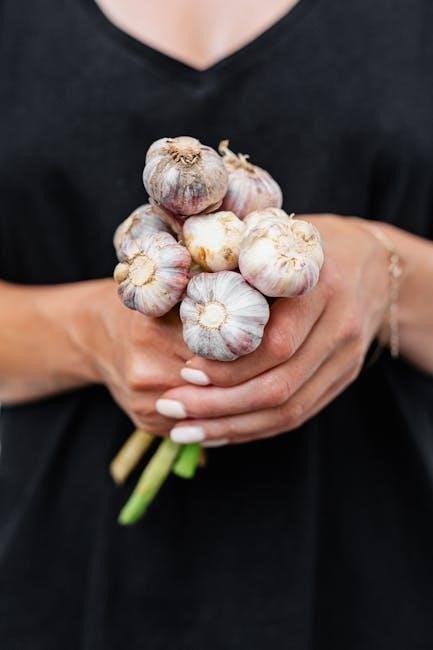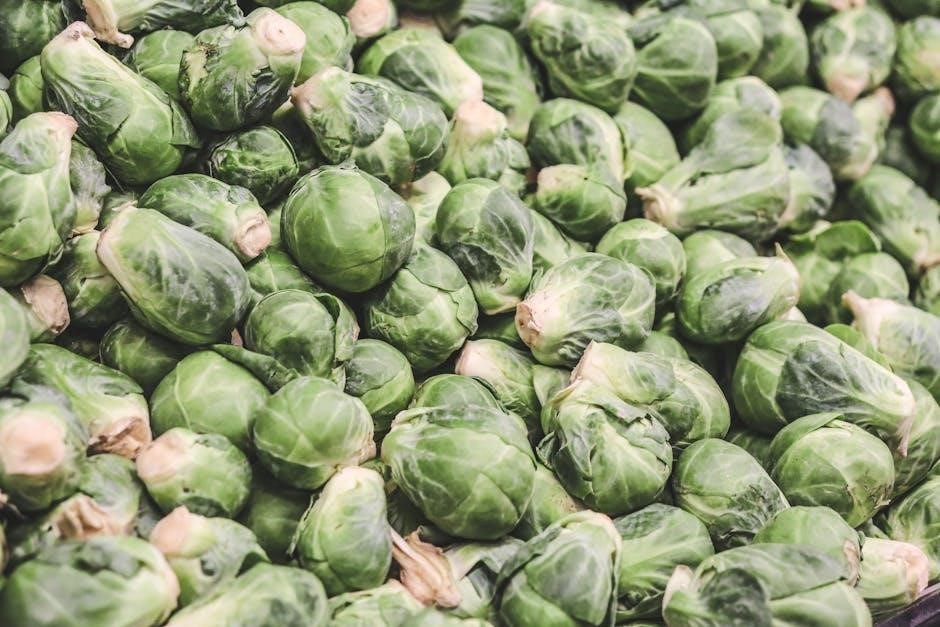Inflammation is the body’s natural response to injury or infection, but chronic inflammation can lead to serious health issues. Incorporating anti-inflammatory foods into your diet can help reduce inflammation, improve mental health, and lower the risk of chronic diseases. These foods include fruits, vegetables, whole grains, fatty fish, nuts, seeds, and healthy fats, which are rich in antioxidants and omega-3 fatty acids. By focusing on whole, unprocessed foods, you can create a balanced diet that supports overall well-being and reduces inflammation naturally.
Understanding Inflammation and Its Impact on Health
Inflammation is the body’s natural defense mechanism, occurring in response to injury or infection. Acute inflammation is short-term and beneficial for healing, while chronic inflammation persists and can damage tissues. Chronic inflammation is linked to conditions like heart disease, diabetes, and mental health disorders, such as anxiety and depression. Managing inflammation through diet and lifestyle changes is crucial for maintaining long-term health and preventing these conditions;
The Role of Diet in Reducing Inflammation
Diet plays a crucial role in managing inflammation. Anti-inflammatory foods, such as fruits, vegetables, whole grains, and fatty fish, help reduce inflammation by providing antioxidants and omega-3 fatty acids. Conversely, processed foods, red meat, and sugary snacks can trigger inflammation. By focusing on a balanced diet rich in whole, nutrient-dense foods, individuals can effectively lower their inflammation levels and improve overall health, reducing the risk of chronic diseases.

Benefits of an Anti-Inflammatory Diet
An anti-inflammatory diet optimizes gut health, reduces chronic disease risk, and improves mental well-being by minimizing harmful inflammation and promoting a balanced immune response.
Optimizing Gut Microbiota and Reducing Chronic Disease Risk
A diet rich in anti-inflammatory foods supports gut health by promoting a balanced microbiota, which reduces the risk of chronic diseases like obesity, diabetes, and heart disease. Fermented foods, fiber-rich vegetables, and omega-3 fatty acids help maintain a healthy gut environment, while minimizing harmful inflammation that can disrupt microbial balance and lead to metabolic disorders. This balanced approach fosters a strong immune system and overall well-being.
Improving Mental Health and Reducing Anxiety and Depression

Chronic inflammation is linked to mental health issues like anxiety and depression. Anti-inflammatory foods, such as fruits, vegetables, and omega-3 rich fish, help reduce inflammation in the brain. A diet high in antioxidants and fiber supports mental well-being by promoting a healthy gut-brain axis. By incorporating these foods, individuals can lower their risk of mental health disorders and improve their overall emotional resilience and quality of life naturally.

Top Anti-Inflammatory Foods List
Key anti-inflammatory foods include leafy greens, berries, fatty fish, nuts, seeds, and whole grains. These foods are rich in antioxidants, omega-3s, and fiber, promoting overall health.
Vegetables and Dark Leafy Greens
Vegetables and dark leafy greens are packed with antioxidants, fiber, and vitamins, making them potent anti-inflammatory foods. Spinach, kale, broccoli, and Brussels sprouts are rich in polyphenols that reduce inflammation. Cruciferous vegetables like cauliflower and arugula contain sulforaphane, which supports detoxification and immune function. Incorporating these into meals helps combat chronic inflammation and supports overall health. Their anti-inflammatory properties make them essential for a balanced diet.
Fruits Rich in Antioxidants
Fruits rich in antioxidants, such as blueberries, strawberries, raspberries, and cherries, play a crucial role in reducing inflammation. Packed with vitamin C, vitamin E, and flavonoids, these fruits combat oxidative stress and inflammation. Berries, in particular, are known for their anti-inflammatory properties, helping to lower chronic inflammation and support immune function. Incorporating a variety of colorful fruits into your diet can enhance overall health and protect against inflammatory conditions.
Nuts, Seeds, and Healthy Fats
Nuts, seeds, and healthy fats are essential anti-inflammatory foods. Almonds, walnuts, chia seeds, and flaxseeds are rich in omega-3 fatty acids and antioxidants, which help reduce inflammation and improve heart health. Avocado oil and extra-virgin olive oil are also excellent choices, promoting a balanced diet. These foods support brain function and provide sustained energy. Incorporate them in moderation, as they are calorie-dense, to reap their anti-inflammatory benefits and enhance overall well-being.
Fatty Fish and Lean Proteins
Fatty fish like salmon, mackerel, and sardines are rich in omega-3 fatty acids, which are powerful anti-inflammatory agents. These fats help reduce inflammation and support heart and brain health. Lean proteins such as chicken, turkey, and tofu provide essential nutrients without promoting inflammation. Including these in your diet can help balance your omega-6 to omega-3 fatty acid ratio, further reducing inflammation and promoting overall well-being.
Whole Grains and Fermented Foods
Whole grains like quinoa, brown rice, and oats are rich in fiber, vitamins, and minerals that help reduce inflammation. Fermented foods such as yogurt, sauerkraut, and kimchi contain probiotics, which support gut health and boost the immune system. A healthy gut microbiome is essential for reducing inflammation and preventing chronic diseases. Incorporating these foods into your diet can promote a balanced digestive system and enhance overall well-being.
Foods to Avoid: Pro-Inflammatory Foods
Foods to avoid include processed snacks, sugary drinks, red meats, and fried items. These can trigger inflammation, worsening chronic diseases and mental health issues.
Processed and High-Sugar Foods
Processed and high-sugar foods are major contributors to inflammation. They often contain refined carbohydrates, artificial additives, and unhealthy fats that trigger inflammation. Examples include sugary sodas, candy, pastries, and processed snacks. Regular consumption can lead to chronic inflammation, increasing the risk of conditions like obesity, diabetes, and heart disease. Limiting these foods is crucial for maintaining a balanced anti-inflammatory diet and overall health.
Red and Processed Meats
Red and processed meats, such as bacon, hot dogs, and sausages, are known to promote inflammation. These foods contain advanced glycation end (AGE) products and preservatives like sodium nitrate, which can trigger inflammatory responses. Regular consumption has been linked to chronic conditions like heart disease and certain cancers. Reducing intake of these meats and opting for lean, plant-based proteins can help mitigate inflammation and support better overall health.
Fried Foods and Refined Carbohydrates
Fried foods and refined carbs, such as fries, doughnuts, and white bread, are high in empty calories and unhealthy fats. These foods cause rapid spikes in blood sugar and insulin, promoting inflammation. Regular consumption can lead to weight gain, insulin resistance, and chronic inflammation, increasing the risk of diseases like diabetes and heart disease. Limiting these foods and choosing whole, nutrient-dense options helps reduce inflammation and supports long-term health.
Practical Tips for Incorporating Anti-Inflammatory Foods
Start by planning meals with anti-inflammatory ingredients like leafy greens, berries, and omega-3 rich fish. Incorporate spices such as turmeric and ginger for added benefits. Opt for snacks like nuts and fresh fruits to keep inflammation at bay. These simple changes can make a significant difference in reducing inflammation and improving overall health.
Meal Ideas and Snack Options
Incorporate anti-inflammatory foods into your meals with vibrant salads, hearty soups, and stir-fries. Start your day with a smoothie blending greens, berries, and flaxseeds. For lunch, try a quinoa bowl with roasted vegetables and avocado. Snack on mixed nuts, fresh fruit, or dark chocolate. Dinner options include grilled fatty fish with steamed broccoli or a lentil curry with turmeric and ginger. These meals are flavorful and packed with anti-inflammatory benefits.
Using Anti-Inflammatory Spices and Herbs
Spices and herbs like turmeric, ginger, cinnamon, and garlic are potent anti-inflammatory agents. Turmeric contains curcumin, which reduces inflammation and improves symptoms of arthritis. Ginger has natural anti-inflammatory compounds that aid digestion and ease pain. Incorporate these into soups, stir-fries, or teas for added benefits. Cinnamon and garlic also have anti-inflammatory properties, making them great additions to meals. Using these spices can enhance flavor while supporting overall health.

Download Your Free Anti-Inflammatory Foods List PDF
Access a free printable guide featuring a comprehensive list of anti-inflammatory foods. This PDF highlights foods that reduce chronic inflammation and supports overall health.
Accessing the Printable Guide
Download a free, easy-to-print PDF guide featuring a comprehensive anti-inflammatory foods list. This guide includes detailed lists of foods to enjoy and avoid, plus tips for incorporating them into your diet. Perfect for meal planning, it offers a clear, organized format to help you make informed choices. Print it out and keep it handy for grocery shopping or quick reference. Start your journey toward reducing inflammation and improving your health with this essential resource.
How to Use the List for Better Health
Use the anti-inflammatory foods list PDF to plan balanced meals, identify healthy snacks, and make informed grocery choices. Highlight or circle items you enjoy, and gradually incorporate them into your daily diet. Track your progress, and adjust based on how your body responds. Refer to the list regularly to ensure you’re avoiding pro-inflammatory foods and maximizing nutrient intake. Pair this guide with a meal planner or app to streamline your health journey and achieve lasting benefits.
Embracing an anti-inflammatory lifestyle through diet is a powerful way to enhance health and reduce chronic inflammation. By prioritizing whole, nutrient-rich foods and minimizing processed items, you can foster long-term well-being and resilience, supporting both body and mind effectively.
Embracing a Balanced and Inflammatory-Fighting Lifestyle
Adopting a balanced diet rich in anti-inflammatory foods is key to maintaining overall health. Focus on whole, unprocessed foods like fruits, vegetables, whole grains, and fatty fish, which provide essential antioxidants and omega-3 fatty acids. Limit pro-inflammatory foods such as processed meats and sugary snacks. Incorporating mindful eating habits and staying hydrated can further support your body’s natural healing processes. By making these lifestyle changes, you can reduce chronic inflammation, improve mental health, and enhance your quality of life. Regular physical activity and stress management also play crucial roles in sustaining a balanced, inflammatory-fighting lifestyle. Consistency is vital, so gradually integrate these changes to create a lasting impact on your well-being. Over time, these practices can help mitigate the risks of chronic diseases and promote a healthier, more resilient body. Embrace this holistic approach to nutrition and lifestyle to foster long-term vitality and optimal health outcomes.
